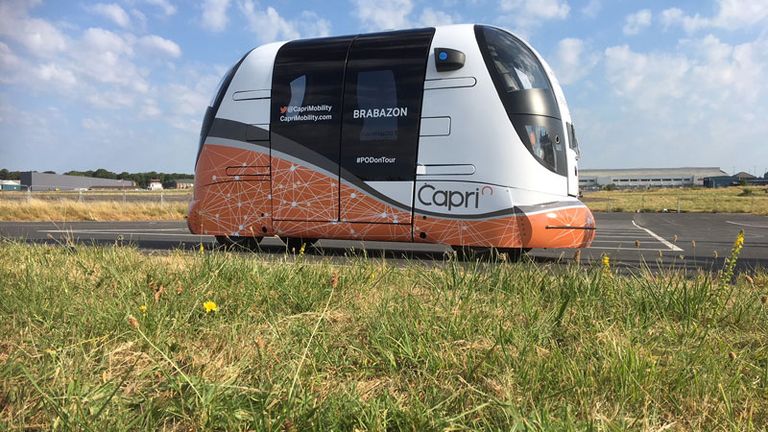Driverless, autonomous transport pods begin UK public trials
The pods use sensors, radar and vision processing to navigate crowded areas and avoid collisions.
Tuesday 21 January 2020 04:27, UK
Autonomous pods, which could be used to provide mass driverless transport, will be tested on the public for the first time on Tuesday.
The vehicles are being trialled in Bristol by infrastructure firm AECOM, which is working with partners including the Bristol Robotics Laboratory to develop autonomous vehicles.
The pods use sensors, radar and vision processing to navigate areas crowded with pedestrians, push-chairs and bikes.
This will be the first test which will allow members of the public to travel in the pods without any dedicated supervisor inside, with researchers studying their reaction to autonomous transport.
It's hoped the pods could be used in cities across the UK to move people to venues, hailed by the public using an app.
The project, called CAPRI, is made up of 17 businesses and academic institutions including the University of the West of England, Bristol University and Heathrow Airport.
The CAPRI consortium was awarded £35m by The Centre for Connected and Autonomous Vehicles (CAVs), the government department set up to support the early market for CAVs.
George Lunt, Technical Director at AECOM, said: "With a number of environmental, efficiency and mobility benefits associated with connected and autonomous vehicles, there is great potential for the UK to enter a diverse range of international markets.
"However, for this idea to fully develop, it is vital the public are on board and have the chance to experience a mobility service that can potentially transform the way they travel," he added.
Trials on open public roads will take place later this year.




